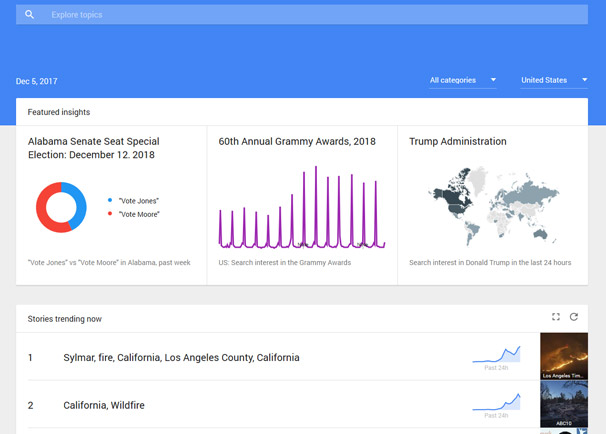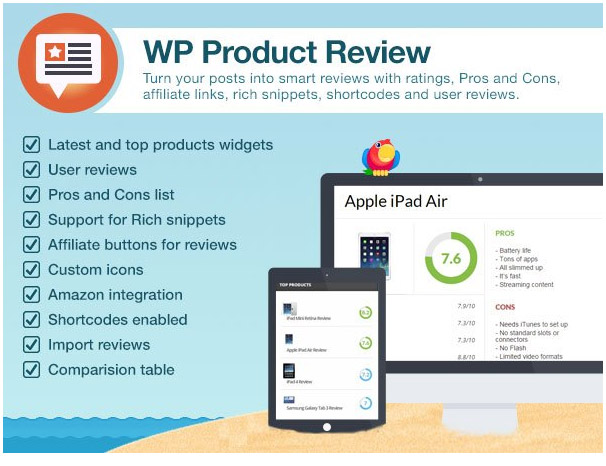You need great blog ideas before creating content that keeps the fire burning on your blog. New bloggers often find themselves overwhelmed with content ideas, making it difficult to set priorities. That’s not something unique to new bloggers as experienced bloggers also sometimes get overwhelmed by the number of decisions they can make. On the other extreme, they find it difficult to generate new ideas that are able to attract traffic and generate revenue.
It becomes a lot easier to generate and prioritize content ideas if you have an organized system in place. But things don’t work the same way for everyone as some get new ideas as they write, while other get inspiration by posts written by others. This guide aims to put together methods that work well for most bloggers and help them keep creativity flowing. However, there isn’t any single magical formula that guarantees success and it’s more of a mix-and-match thing.
 Exclusive WPEngine Coupon Code for AlienWP Visitors!
Exclusive WPEngine Coupon Code for AlienWP Visitors!Get 5 Months Free & 30% Off All Plans.
Click the coupon code to copy and open the link »
Finding a Niche and Why it’s Important?
If you are passionate about technology or gadgets, dedicating your time and energy to other areas could be a waste of resources. That’s why finding a niche is considered the most important element of generating new blog ideas. A niche can be as narrow or broad as you like, but if you really want the right kind of internet traffic, it’s better to be as specific as possible. It’s very likely that there are thousands of blogs already offering similar information about a particular topic/niche, making it important to offer readers something fresh and valuable.
For example, you may be passionate about the technology in general, but narrowing down your niche to let’s say gaming laptops or mobile workstations would help you stay more focused. It’s particularly hard for new bloggers to compete in established niches so it makes sense to focus on a smaller, narrower niche. Some may suggest running multi-niche blogs, but that’s something only experienced bloggers should consider (still not recommended). Focusing on a very specific niche helps attract relevant traffic that actually cares about what you have to offer. Here are three simple and obvious questions one should ask before selecting a niche to serve:
What are you passionate about?
If you are not focusing your efforts on something you really like, chances are great that you’ll soon get tired and lose interest. Note down the key areas you feel passionate about and rank them according to the degree of likeness. Choose the area you can and want to talk about the most as you’ll be doing that for years to come. Your passion speaks through your words and readers can easily pick that up in your posts. Nobody likes to read lengthy sales pitches and want content coming from someone who actually loves his/her field and knows about the stuff.
Earning Potential
While selecting your niche, it’s also important to consider your goals, which should be realistic and not based on assumptions. If you plan to monetize your blog, make sure that the niche you are about to select is profitable (unless you have some revolutionary idea). It’s not too difficult to determine if a niche has the earning potential or not using the following tools.
Google Keyword Planner
Google Keyword Planner is the perfect place to start searching for keyword earning potential, volume and trends. You first need to make a comprehensive list of relevant keywords for your niche to know about their average monthly search volume and other stats. Google Trends is another great platform to discover the most trending and popular keywords.
Affiliate Marketing Potential
Affiliate linking is a great way of monetizing blogs by adding links to recommended products/services. There is no shortage of programs to sign for such as Amazon Associate Program, ShareASale etc., but make sure to check in advance if the niche you are about to serve is supported by such programs. Affiliate marketing has the potential of turning your blog in to a money making machine in no time, provided you are offering something valuable to the readers.
Take a look at our guide to WordPress Review plugins, reviews are one of the best ways to create affiliate income.
General and Social Media Popularity
Active blogs and websites provide a good idea of how popular particular niches/topics are. Make a list of blogs that you love to visit and note down the most popular topics. Generate ideas on how to improve on those topics and offer more information. Fan pages and social media hashtags also help understand topics people are interested in. In addition to blogs/websites and the social media, forums such as Reddit, Quora and relevant message boards cover almost any topic you could imagine. They can prove to be a great source of generating new ideas and can help generate more ideas than you could write about.
Generating Ideas
Once you have defined the niche and established clear goals, it’s becomes easier to generate new content ideas. Use your existing knowledge about a niche to narrow down topics and take advantage of online resources. Reading other blogs to generate new ideas works great for most new bloggers, but you can also do a comprehensive keyword research to determine what exactly people are searching for. Here are some helpful tips that make it easier to generate new ideas:
- Ask readers about their feedback, use surveys to generate a ton of new ideas, great blog ideas are often just a few questions away
- Brainstorm with others, let them help you
- Learn about posts that readers love and comment on the most
- Comments (your own and others’) help highlight pain-points and common questions
- Define and understand your target audience well, aim for highly targeted content
- Use primary keywords to generate long-tail keywords using Google AdWords and other tools
- Google auto suggestions helps source ideas that people are actively searching
- Take help from other bloggers or hire someone to do the work (if you can afford it)
- Interview experts, you can also publish such interviews at times when your creativity stops flowing
- Keep an eye on trends as they also help predict what’s coming up next, act quickly and keep up with what’s hot
- Find out what’s working for the competition, their most popular posts
- A competitive analysis also tells about the content they are not talking about
- Try to find what failed posts by competitors were missing, can you improve them and add value?
- Organize and maintain bookmarks to keep the wheel spinning
- Always keep a notepad, Evernote etc. ready, you never know when the next great idea might strike
- Create fresh ideas out of existing work, but don’t steal, just borrow
- Giveaways and contests can do wonders, are easy to setup
- Take advantage of post headline generators (HubSpot, Portent, Inbound Now Blog etc.)
- Put yourself in readers’ shoes; relate your own experiences to theirs
- Be transparent and honest, reflect on what went wrong
- Don’t forget to take a break from time to time and relax, blogging isn’t just about getting burnt out
WordPress Blog Keyword Optimization Tools
Content that offers value to the reader must also be keyword optimized. Take advantage of the available keyword tools to optimize your content for search engines. Google Keyword Planner is a great place to start and allows bloggers to select a niche/topic and search for relevant keywords. Once you have the right keywords ready, you can generate post ideas with the help of Hubspot Blog Ideas Generator and other sites. Most these tools are free-to-use and make it easier to generate relevant keywords and optimized titles.
WordPress Plugins
WordPress being one of the most popular and extensible platforms allows installing different plugins that make life a lot easier. Editorial calendar plugins such as Editorial Calendar, Edit Flow and CoSchedule help organize ideas and authors in a better way and make scheduling easier. WP content organization and sharing plugins work great for bloggers who are starting from scratch, while also making things easier for more experienced bloggers.
Do What People Love to Read but too Scared to Try
Ever watched a YouTube video showing geeks shooting their iPhones (just to know how many iPhones it takes to stop a bullet)? That’s the kind of stuff people love to read/watch, but would never try themselves. It’s human nature to know if something risky worked for others or not before giving it a try.
In context of generating ideas and content for your blog post, it means that you can afford to take some risks and try things that others are afraid to try and write about them. Depending upon your niche, only your imagination can limit the options. Being bold not only gives you a chance to try new things, it also helps you establish as a leader.
Share Small Experiences
Blogging isn’t just about big things. You can blog about almost anything as long as the information is valuable, interesting and makes people read and share it. Such small things are often the gateway for bigger ideas. If you are able to help people with their ‘little issues’, you are adding value and that’s what matters the most.
Content Repurposing
It’s a common perception that once you are done creating a post, you publish and forget about it. However, people consume content differently and what might work for someone, may not work for others. Repurposing content means recycling existing content and finding new/creative ways to reuse it. Writing and forgetting about a topic is also wasteful and kind of a disservice to the readers. Your comprehensive guide to buying the best gaming laptop can be very valuable to techies, but others might be looking for a side-by-side price/feature comparison. Here are some tips on repurposing content and making the most of it:
- Try reaching a new audience such as people who prefer infographics, tables, side-by-side comparisons etc. Reformat the content for different mediums to extend reach
- Put your old favorites up front & center from time to time, don’t let the audience forget your great content
- Give your old content a second chance, may be the timing wasn’t right the last time
- Get help from Google Analytics to identify blogs that have been performing well over time
- Update content that’s still relevant
- Expand on subheadings/points from old posts
- Argue from both sides, if you made a post about why to buy XXX, write a new post about why NOT buy XXX
- Give your posts a makeover and repurpose them for new audiences
- Don’t let the webinars go to waste, repurpose then as YouTube videos and share them on the social media
- Turn your old blog posts into complete guides by combining them, add more content to update them
- Turn surveys and experiments into case studies and share them with fans
- Edit and turn your PowerPoint presentations into slide decks using platforms like SlideShare and embed with webpages
- Turn expert interviews into expert advice e-books
- Turn image-heavy posts into Pinterest boards, adds a new traffic segment
- Get content inspiration from Quora, find high-demand Q&As and answer them as full-fledged blog posts, also answer the same questions briefly on Quora while providing a link to your own post
- Turn PowerPoint graphs and charts into easy-to-read infographics
- Share behind-the-scene stories
- Share interesting or important facts about your interests on Twitter
- Promote your blog posts in newsletters, preferably on a weekly/monthly basis
- Start a podcast (detailed guide) to enhance reach, hire someone on Fiverr/ other freelance platform to do a voice over if podcasts isn’t your thing
- Make podcast tone more conversational and relaxing by editing the original posts
Although content re-purposing can help you reach new audiences and allow making the most out of existing posts, it isn’t meant for all your old content no matter how much you love it. You need to be very careful while selecting ideas you think are great. Only the best would do and there is no point in reformatting a blog post about your first PC. That information is probably no longer useful so try to repurpose blogs that still offer value and are relevant.
Conclusion
Generating new content ideas can be a challenging task for both new and experienced bloggers, but the important thing remains building a solid foundation. If you understand your target audience well and are willing to listen to their feedback and questions, you’ll get most of the news ideas right from there. Just make sure to select a niche you really feel passionate about and the rest would become easier. You can even ignore the earning potential stuff in the beginning if you have something truly valuable to offer. After all, generating ideas is not just about serving existing niches; it can also help create new niches.




